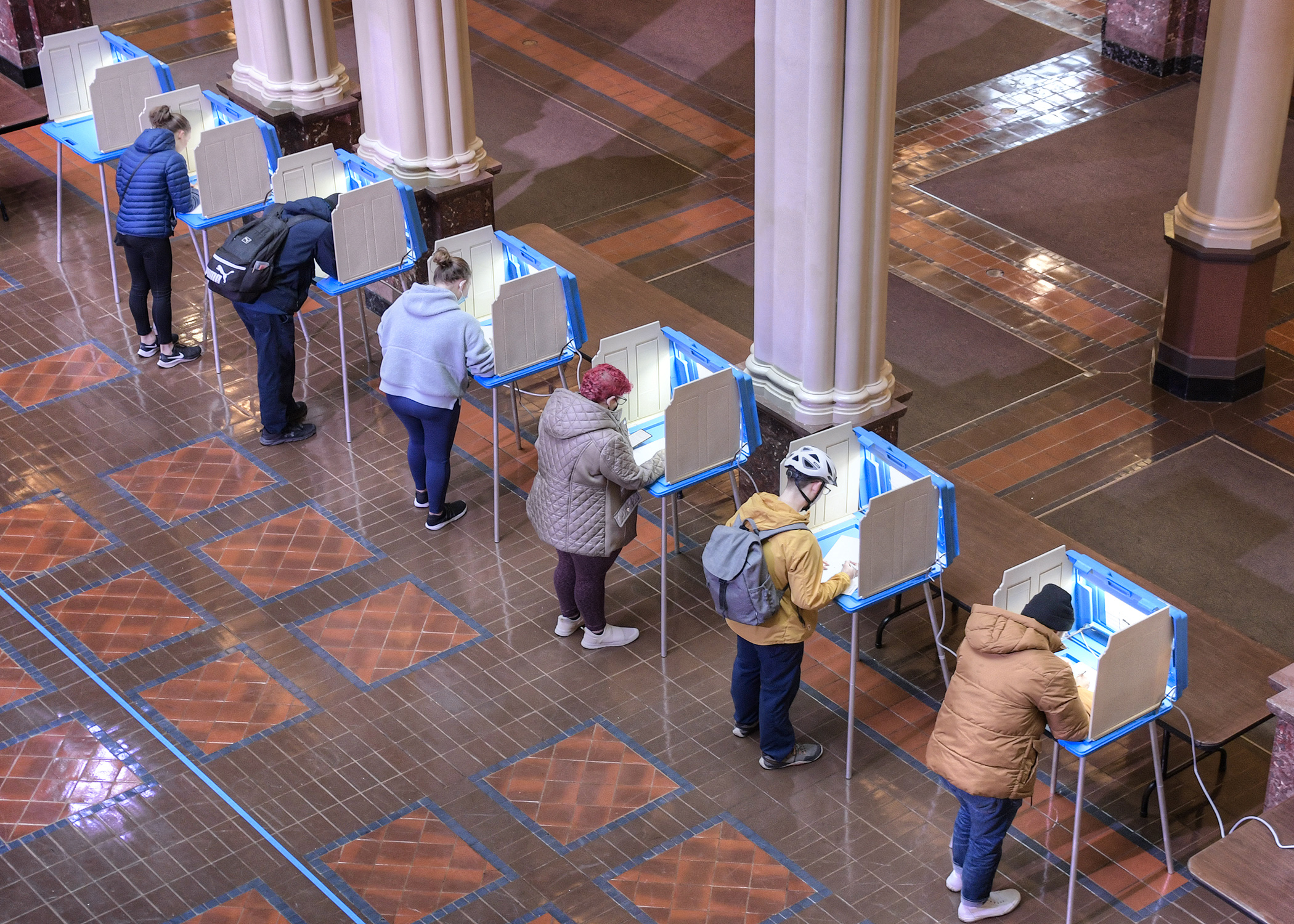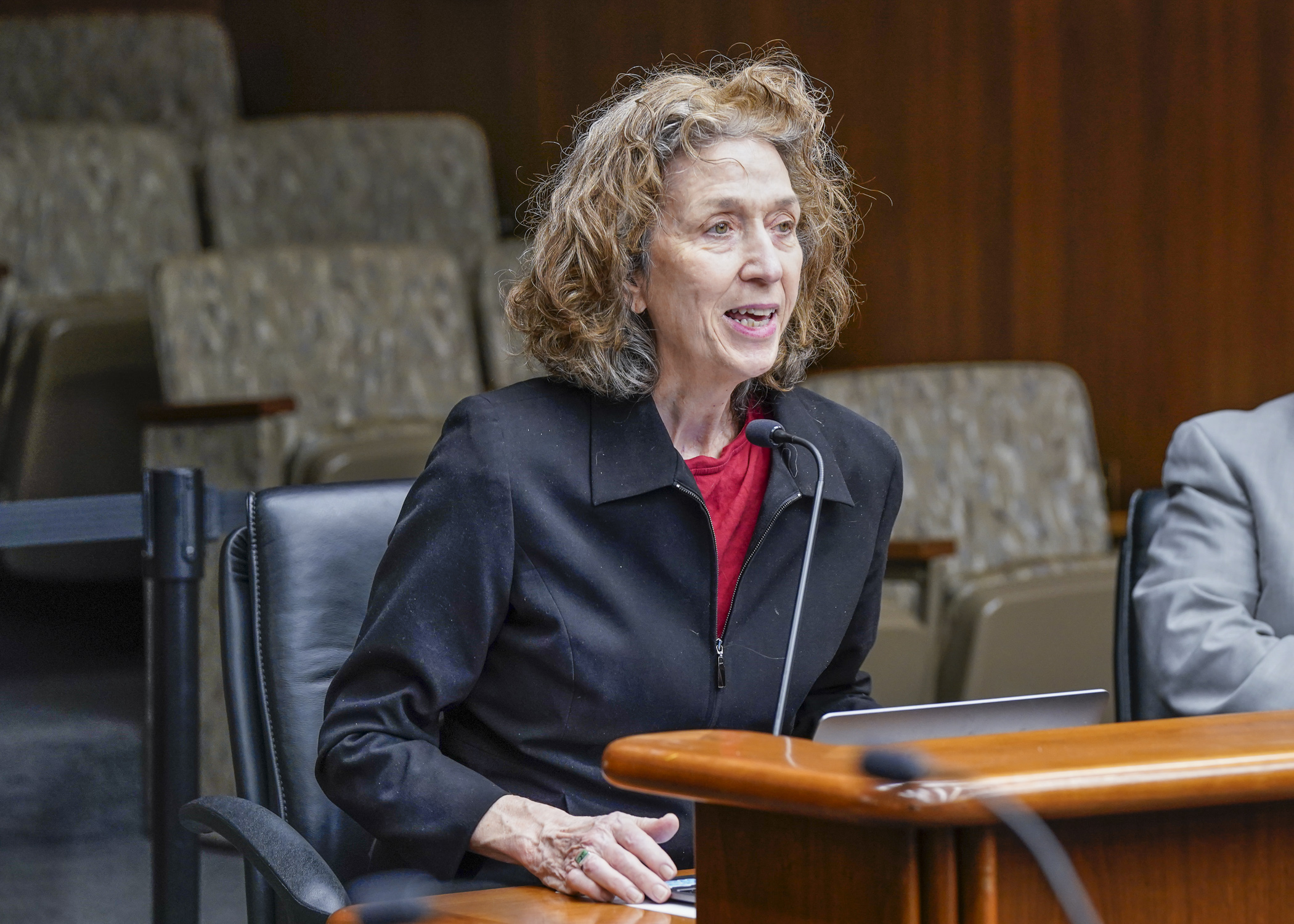House committee advances proposed doubling of public campaign reimbursement

Since 1990, a political contribution refund program has permitted Minnesotans to reclaim some or all of their contribution to a candidate or political party if the candidate has signed an agreement to limit spending during the election cycle.
But for many people the hassle for a minimal return has not been worth it.
Advocates for a bill to double the returnable dollars are optimistic a change would encourage more smaller donations and help reduce the perception that politicians are beholden just to big money donors.
Sponsored by Rep. Nathan Coulter (DFL-Bloomington), HF1489, as amended, would change the annual maximum amount of the political contribution refund from $50 to $100 for an individual and $100 to $200 for a married couple filing jointly. Limits would be adjusted for inflation in future years.
Approved Wednesday by the House Elections Finance and Policy Committee, the bill’s next stop is the House Taxes Committee.
“When folks contribute $5, $10, $15, $20, they’re actually more likely to participate in other ways, including voting,” said Rep. Emma Greenman (DFL-Mpls).
 Mary Hartnett, executive director of Clean Elections Minnesota, testifies Wednesday before the House Elections Finance and Policy Committee in support of HF1489. (Photo by Catherine Davis)
Mary Hartnett, executive director of Clean Elections Minnesota, testifies Wednesday before the House Elections Finance and Policy Committee in support of HF1489. (Photo by Catherine Davis)Jeff Sigurdson is executive director of the Campaign Finance and Public Disclosure Board.
He said the political contribution refund program’s participation has declined from 58% of individual contributions refunded in 2007 to 13% in 2021. In 2002, $3.3 million was refunded; in 2021 it was an all-time low of $618,000.
The board supports raising the caps to $200 and $400, and Sigurdson would like to see a modernization of the process getting money back.
Currently, a donor must obtain a contribution receipt from the candidate or a party unit, mail it and an application to the Department of Revenue, wait for verification, and then get a check.
“In my opinion, the number of people who will use the PCR program will be probably more affected by making the program easier to use than by increasing the amount,” Sigurdson said. “The current system is so paper-heavy and puts so much of the burden on the donor to get the refund. … Undoubtedly, it’ll go up some, but I think it has to go hand-in-hand with modernizing the system of issuing the PCR.”
Rep. Paul Torkelson (R-Hanska) noted there have been years the program was not funded, generally when the state runs a budget deficit.
“Given the amount of spending that was revealed yesterday, we may very well be headed for a deficit sometime in the near future. At that time, it’s very possible this program will be suspended again regardless of how much we are able to modernize it or how much money (we allocate).”
Related Articles
Search Session Daily
Advanced Search OptionsPriority Dailies
Speaker Emerita Melissa Hortman, husband killed in attack
By HPIS Staff House Speaker Emerita Melissa Hortman (DFL-Brooklyn Park) and her husband, Mark, were fatally shot in their home early Saturday morning.
Gov. Tim Walz announced the news dur...
House Speaker Emerita Melissa Hortman (DFL-Brooklyn Park) and her husband, Mark, were fatally shot in their home early Saturday morning.
Gov. Tim Walz announced the news dur...
Lawmakers deliver budget bills to governor's desk in one-day special session
By Mike Cook About that talk of needing all 21 hours left in a legislative day to complete a special session?
House members were more than up to the challenge Monday. Beginning at 10 a.m...
About that talk of needing all 21 hours left in a legislative day to complete a special session?
House members were more than up to the challenge Monday. Beginning at 10 a.m...